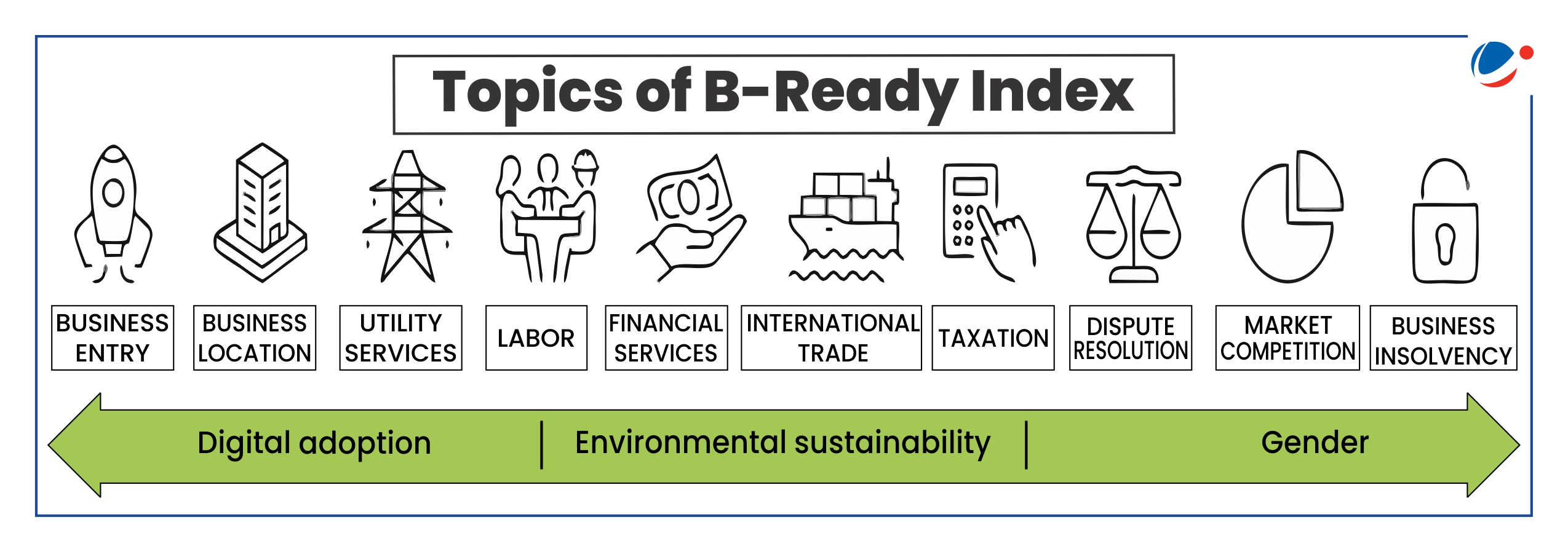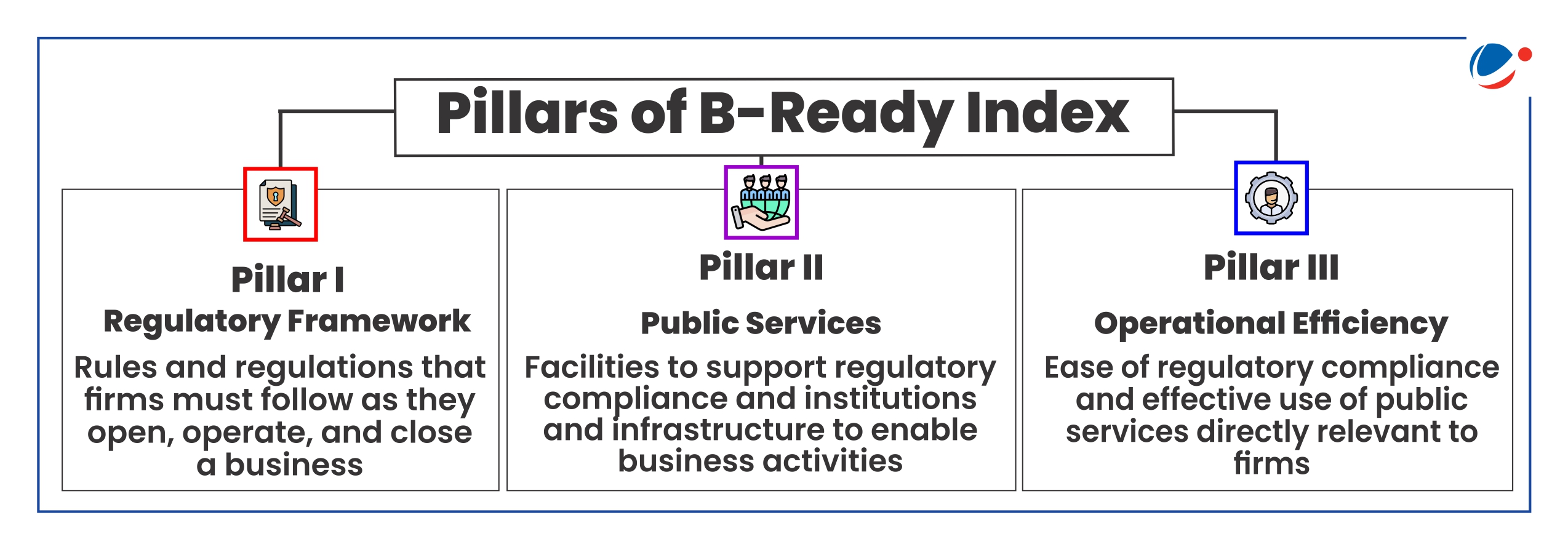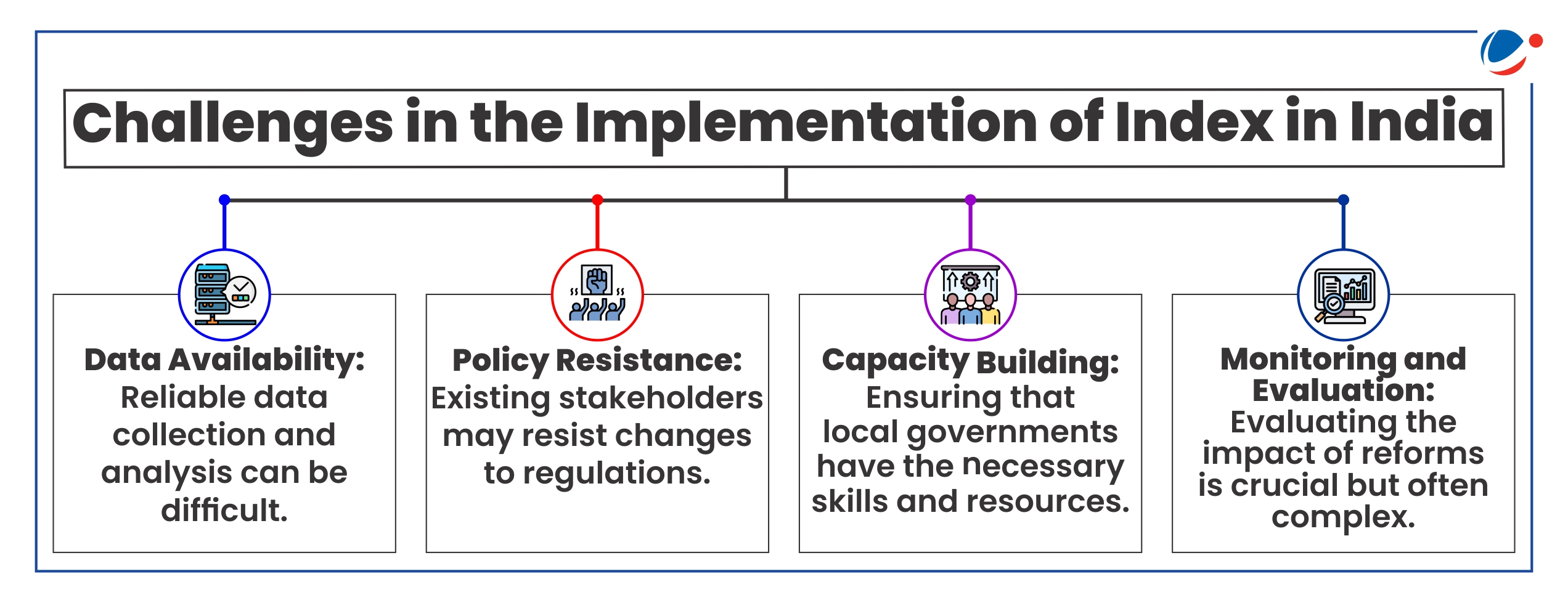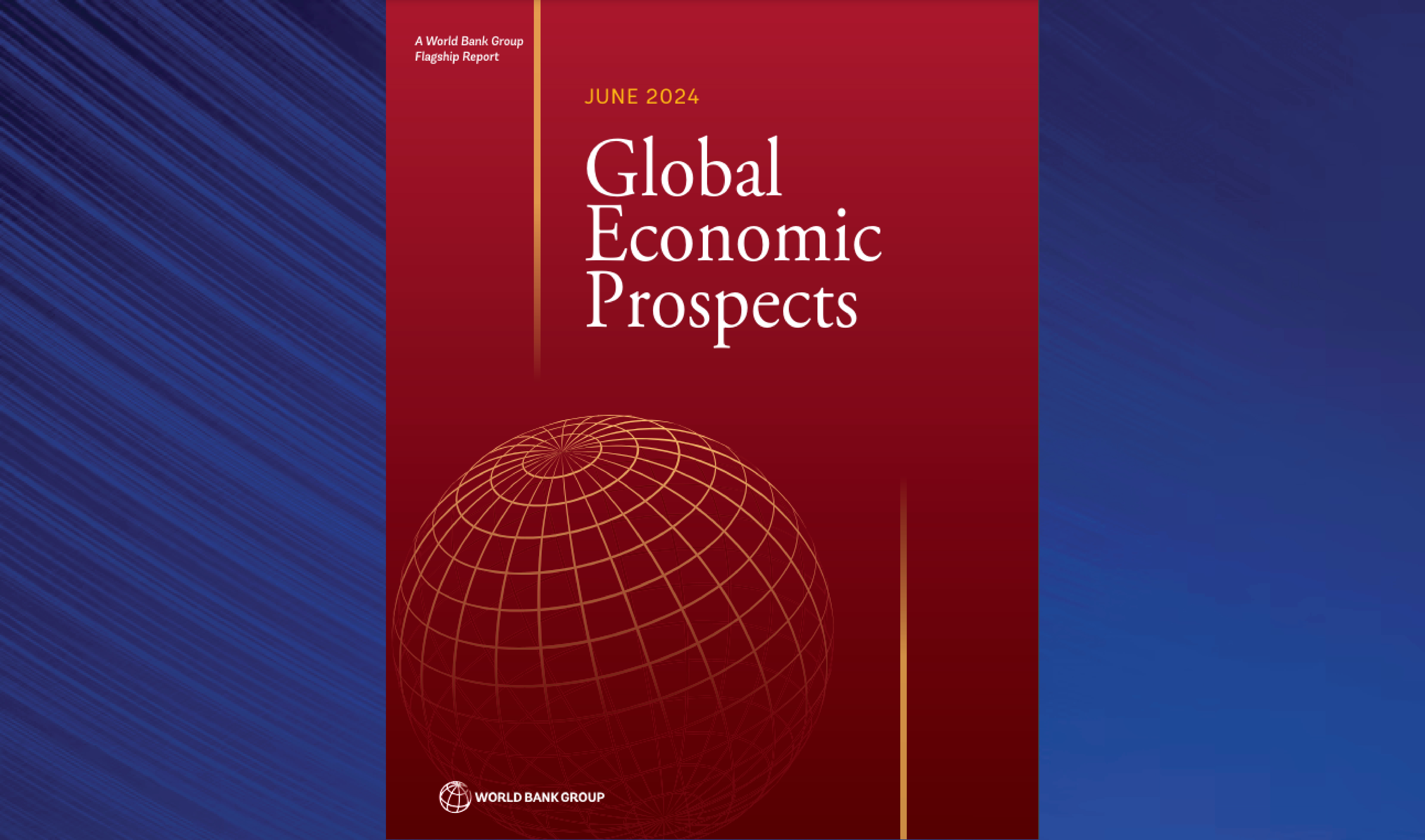Why in the news?
World Bank (WB) launches the first edition of its Business-Ready (B-Ready) Index.
More on News
- As a new project, B-Ready is in a three-year rollout phase, spanning 2024 to 2026.
- The assessment currently includes 50 economies (excluding India) and plans to expand to 180 by 2026.
- The B-READY framework replaces the World Bank's Ease of Doing Business (EoDB) rankings, which measured how easy it was to start and operate a business.
- The EoDB report was discontinued in 2021 due to irregularities in data and ethical concerns.
- The 2024 Business Reform Action Plan rankings prepared by the Department for Promotion of Industry and Internal Trade will include some of the indicators tracked by B-Ready index.
What is the B Ready Index?
- About: It is a new data collection and analysis project of the world bank group to assess the business and investment climate worldwide, accompanied by an annual corporate report.
- Aim: To promote private investment, create jobs, and enhance productivity to support inclusive and sustainable economic development.
- It also aims to ensure that the data produced are both comparable across economies and representative within each economy.
- It aims to achieve objective by focusing on three main areas
- Reform Advocacy: Encourages policy reforms by sharing benchmarks and fostering dialogue among governments, businesses, and the World Bank.
- Policy Guidance: Offers tailored recommendations for policy changes based on data comparisons to global best practices.
- Analysis and Research: Supplies detailed data to support research on private sector development factors.
What is the Analytical Framework of the B Ready Index?
- It is structured topics crucial for private sector development, reflecting different stages in a business's lifecycle, including opening, operating (or expanding), and closing (or reorganizing) a business.
- Cross-Cutting Themes: covers three important cross-cutting areas across the ten topic

- Digital Adoption: Examines how governments and businesses integrate digital tools.
- Environmental Sustainability: Evaluates regulations that affect business environmental practices.

- Gender: Analyzes anonymized gender data to assess the impact of programs and regulations on businesses.
- For each of the 10 topics, B-READY considers three pillars
What is the difference between the Ease of Doing Business and the B-ready index?
Aspects | EODB | B Ready |
Focus of Assessment | Primarily small and medium enterprises. | Targets private sector development as a whole. |
Assessment | Examine only burden of regulation on firms. | Examines regulatory burden on firms and quality of regulation. |
Analytical Framework | 10 indicators across various categories. | Ten topics, three pillars, three themes. |
Data Collection Method | Expert consultations and case studies emphasized either legal (de jure) or practical (de facto) regulations, but not both consistently. | Combines expert insights and firm surveys for a balanced view of regulations, improving data comparability across economies. |
Geographical Reach | Main business city in 191 economies and a second city in 11 | Aims for wider coverage, including local regulations
|
What is the significance of the adoption of B ready index for India?
- Boosting Competitiveness: The B-Ready Index helps India improve its business environment to attract foreign investment, essential for economic growth.
- E-commerce Support: Targeting $200 billion in e-commerce exports by 2030, the index helps identify and streamline issues in digital trade and logistics.
- Informed Policy: The data from the index provides insights into business challenges, guiding policymakers to create targeted reforms in trade and compliance.
- Encouraging Innovation: By emphasizing digitalization and sustainability, the index motivates businesses to innovate, boosting productivity.
- Promoting Inclusivity: The index includes gender equality measures, supporting India's goals for inclusive growth and better access for women and underrepresented groups.
- Monitoring: Regular updates allow India to monitor its progress and adjust strategies to remain competitive in the global market.
- Transparency & Data Integrity: It ensures data integrity through strict gathering processes and safeguards, while promoting transparency by making foundational documents, such as the B-READY manual and handbook.

Way Forward
- Enhancing Governance: Building the ability of government institutions to create and enforce effective policies.
- Involving Stakeholders: Engaging businesses, civil society, and other groups in the reform process to foster collaboration and support.
- Capacity Building: Providing training and resources to local governments to better assist businesses.
- Promoting Inclusivity: Ensuring that reforms benefit a diverse range of businesses, especially small and medium enterprises.





